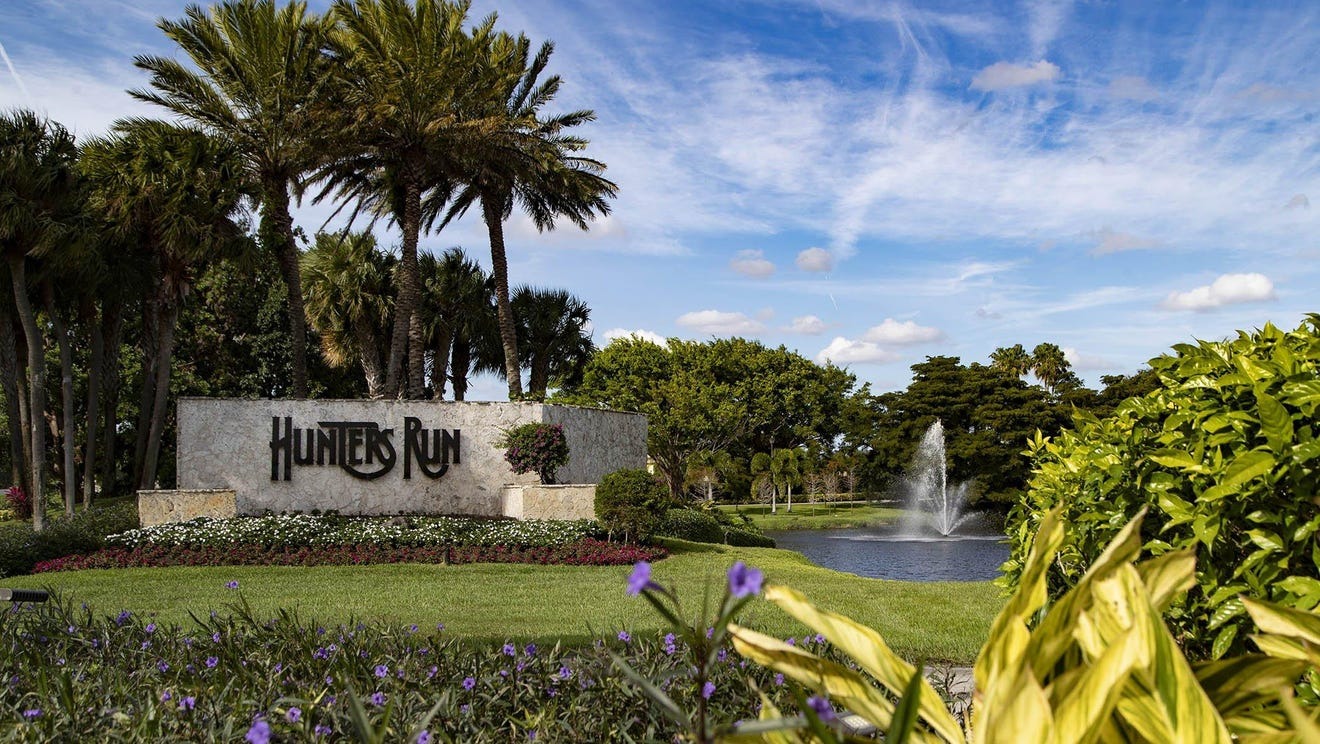BOYNTON BEACH, Fla. — Owners at Hunters Run may soon have to give up the equity or refund they were promised when they initially bought at the golf course community.
At stake is $49 million worth of equity that older owners were supposed to get back when they eventually sold. Some of the refunds are as much as $32,000. The Hunters Run board argues that it needs the $49 million to pay for capital improvements. The alternative, it say, is a special assessment that would be close to $30,000 per household.
The board voted this year to take away the equity rights of members, but petitions were submitted opposing the decision, forcing a referendum. The votes will be tallied on Monday, Sept. 23. The board’s lawyer submitted an opinion saying the board could legally change the bylaws to permit the use of equity funds for capital improvements.
Current owners have until Oct. 1 to sell their units and recover part of their initiation fee.
The result has been a glut of sellers trying to sell to meet the deadline, especially with condominiums. Ten two-bedroom condominiums are currently listed for sale for less than $5,000. One is for sale for $1,000 with a credit of $10,000 to a buyer who can close by Oct. 1. Prices of condo units have been repeatedly slashed to attract buyers.

Hunters Run golf community in Boynton Beach, Florida. (Allen Eyestone/Palm Beach Post)
Country clubs in South Florida typically charge a buy-in or initiation fee to anyone who buys a home. The initiation fee at Hunters Run has been significantly increased over the years to its current level of $105,000, and there is no refund any longer to a buyer when the home is sold. At one time, the refund was as much as 80 percent of the initiation fee.
It is not unusual for country clubs to raise their initiation fees and no longer offer refunds, as Hunters Run did, but what is unusual is the taking away of equity rights of older owners. Wycliffe Country Club in nearby Wellington did it several years ago, but it was done over a three-year period. The Hunters Run board took its action this year.
“I have mixed feelings about it,” said Joel Schreiber, who bought his unit eight years ago. He is being called on to give up $32,000.
“My kids are fine and do not need the money. The club could really use it to improve itself. I love it here. So I am OK with it and will support the board, but I can understand the position of those who want to keep their equity.”
More than 100 homeowners signed petitions calling for the special election.
“This was not an easy decision or one that the board took lightly,” the board said in a recent letter to homeowners. “Every member of the board will lose our equity as well. The board viewed the decision as necessary for the future of Hunters Run.”
The board said eliminating the refundable portion of initial buy-in was the right thing to do, adding: “For years, Hunters Run has toiled over the problem of how to fund our future and for years, the can has been kicked down the road. The board does not believe that members planning to continue to stay should have to pay those who choose to leave the community.”
In a statement emailed to The Palm Beach Post, Board President Richard Kapner said Hunters Run conducted a reserve study to determine replacement costs for its assets.
The study confirmed that some of those assets needed to be replaced, Kapner said, adding, the decision was made that the option of retaining funds from initiation fees was better than imposing special assessments on members.
David Greenblatt, a Realtor who also lives at Hunters Run, represents clients who have listed their condos at $1,000.
“There is some pain being felt right now,” Greenblatt said, “but once we get past this, the community will be much better than it is right now. This is a good way to ensure that the needed improvements are undertaken.”
Hunters Run has three 18-hole golf courses, 18 Har-Tru tennis courts, 12 pickleball courts, a state-of-the-art fitness center, a club spa and seven restaurants. It has 1,650 homes, the first of them were built in 1979. They range from small condos to single-family homes.

